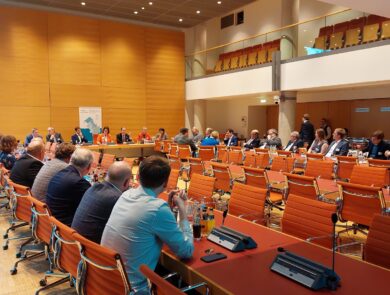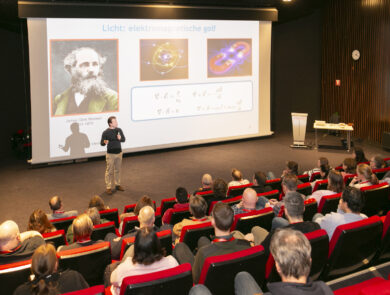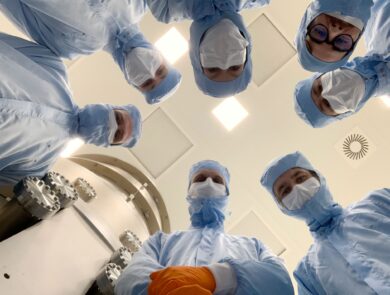Flemish-Dutch summit: intensified cooperation on Einstein Telescope

During the biennial Dutch-Flemish Summit, held on 31 January in ‘s-Hertogenbosch (NL), the Einstein Telescope and the candidacy of the Belgian-Dutch-German border region for this observatory were major topics of discussion at the highest political level. Flemish Economy Minister Jo Brouns and his Dutch counterpart, Minister Micky Adriaansens (Economic Affairs and Climate) discussed developments in this area.
Also at the closing dinner, the Dutch Prime Minister Mark Rutte and Minister Dennis Wiersma (Education, Culture and Science) mentioned the Einstein Telescope as one of the important major projects for the future. The Dutch minister Robbert Dijkgraaf (OCW), who is particularly committed to the Einstein Telescope from a science and education perspective, had obligations in the Lower House and could therefore not attend the summit.
In the joint final declaration on all topics of the Dutch-Flemish summit, the Einstein Telescope gets a lot of attention. Very specifically, Flanders announces in it that it has taken the initiative to make further agreements in Brussels this spring about joining forces and efforts in the field of valorisation, communication, environment-oriented activities and expanding the number of European countries participating in the Einstein Telescope.
The final statement reiterates that the border region of Belgium, the Netherlands and Germany is an ideal environment to build the advanced observatory for gravitational waves. Here, European scientists and companies can then build the future with the most accurate detector for gravitational waves ever developed. This border region offers the right geological environment for this. In addition, an ecosystem of knowledge institutions and high-tech companies is a strong asset.
The ministers welcomed the establishment of the international working group with ministers in the tri-border region of the Einstein Telescope, as agreed at the international roundtable organised by North Rhine-Westphalia in late 2022. As a follow-up, Flanders has now taken the initiative to invite the partners to Brussels in spring 2023 to further intensify efforts in a number of areas.


